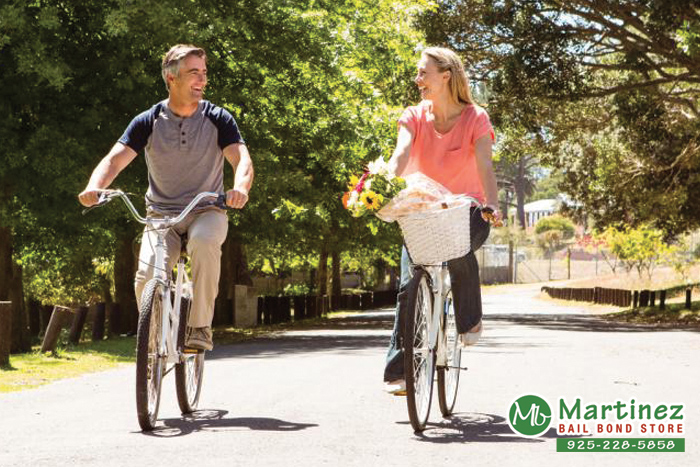
A rite of passage for many young children is learning how to ride a bike. Whether it be the freedom of riding around your neighborhood, cycling to the ice cream parlor in the summer, or just going to visit a friend without having to depend on your parents, there is much fun to be had as a child on a bicycle. However, we must intervene and say that no matter what society may say, it is never too late for anyone to learn how to ride a bike.
As one gets older, the passion for bike riding may evolve into a love of cycling, a more formal means of biking, or may simply fade away as a childhood memory. If you are a person that falls into the first category and love riding a bike, this post is for you! Did you know that there are specific traffic rules in California for cycling? If not, you’re in luck.
In order to help keep you safe on the road, we’ve compiled a list of common bike laws in the state of California.
- When there is not a bike lane, one must ride as close to the right side of the road as possible except when passing, turning left, avoiding road hazards, or if the road is too narrow to share. If a bike lane is present, you must ride in the designated lane unless one of the previously mentioned conditions is present.
- You’re in luck, it is the law that no one may stop or park on a bicycle path.
- Stay off freeways, expressways, and toll bridges. Cyclists are prohibited by California Department of Transportation.
- The handlebars on your bike may not be taller than the rider’s shoulders.
- When biking at night, be sure a white headlight is attached to your bike or person and is visible from the front.
- In addition to a white headlight, your bike will need to be equipped with a red reflector that is visible from the back as well as a white or yellow reflector that is affixed to the bike’s pedal.
- We know you like your music, but it is against the law to have headphones or earplugs in both ears when biking.
- Just like motor vehicles, cyclists must yield the right-of-way to pedestrians within marked crosswalks or unmarked crosswalks at intersections.
- However, unlike motor vehicles, cyclists may use a cell phone while riding. While using a cell phone isn’t illegal, we suggest keeping your phone zipped away and your eyes on the road at all times.
Whether you’re an avid cyclist or you simply want to take your family out for a Sunday afternoon bike ride to the park, it is important that you keep these laws in mind when riding on the roadways. By doing so, you are not only following California state law but you are also helping to ensure your family is safe! If you have any questions or want further explanation about any of the laws listed above, click here.
